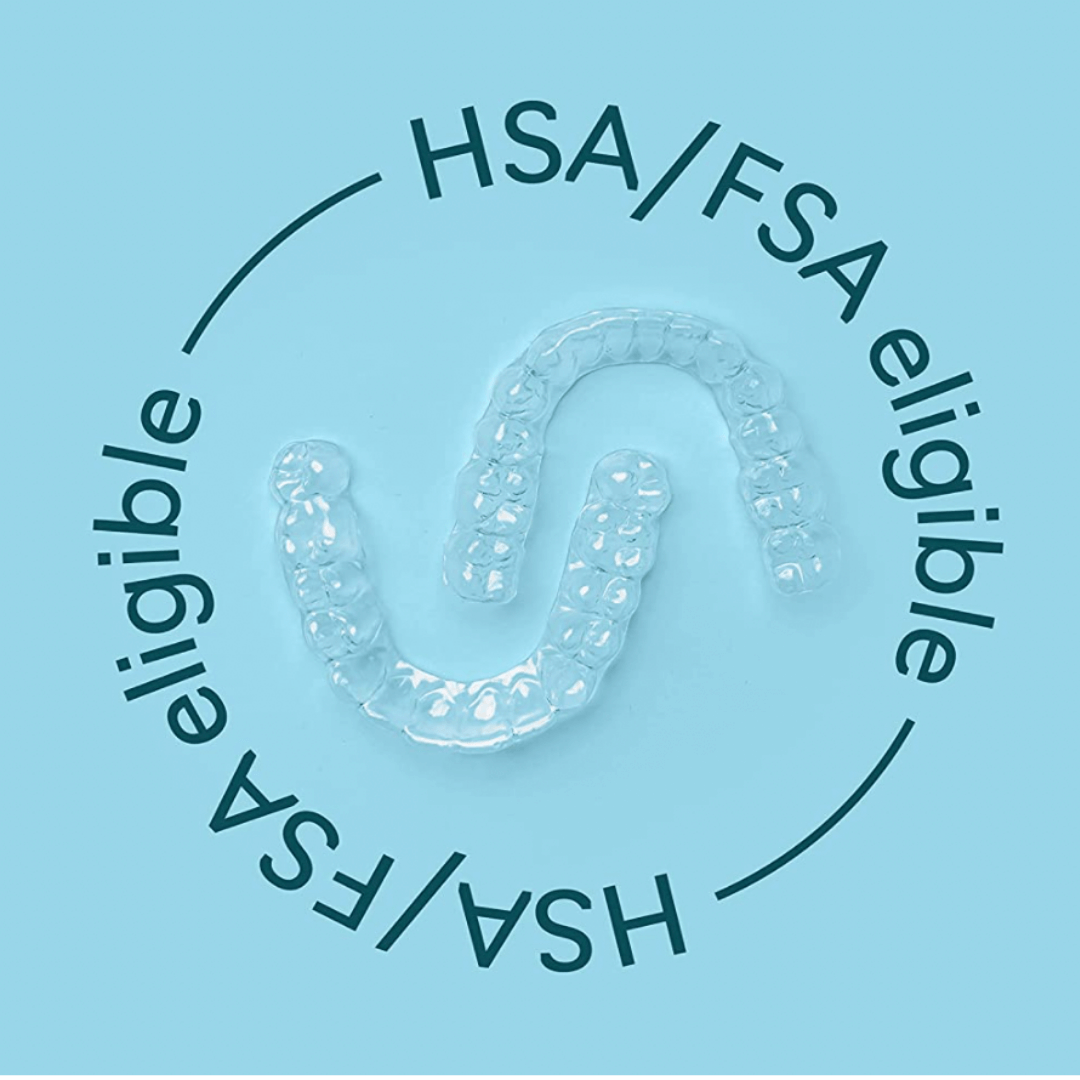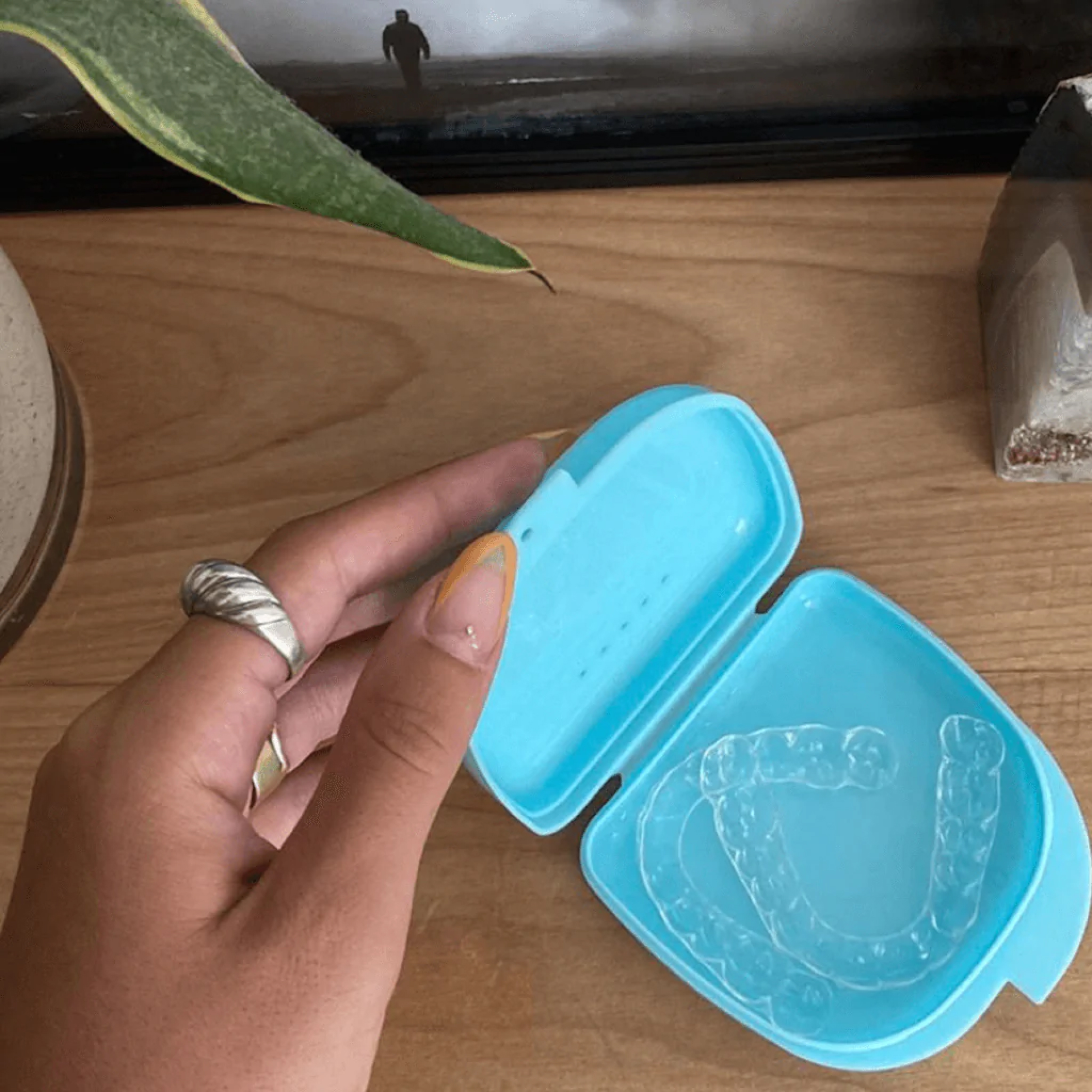Custom Teeth Night Guard vs Tinnitus: Which Is the Better Option?
Tinnitus and teeth grinding, or bruxism, are two common conditions that can negatively impact a person's quality of life. In this article, we'll explore the benefits of using a custom teeth night guard to help manage these conditions and compare it to tinnitus treatment options. By the end, you will have a better understanding of which approach may be the better option for your specific situation.
Understanding Custom Teeth Night Guards
A custom teeth night guard is a device that provides relief from bruxism and, in some cases, can help alleviate symptoms of tinnitus. Bruxism is a condition in which an individual grinds or clenches their teeth unconsciously, often during sleep. This can cause excessive tooth wear and damage, as well as pain in the jaw and facial muscles. Tinnitus, on the other hand, is a condition characterized by a ringing or buzzing sound in the ears, often associated with hearing loss or damage.
Custom teeth night guards are designed to address these issues by creating a protective barrier between the upper and lower teeth. They are made from an individual's unique dental impression, ensuring a perfect fit and maximum effectiveness.
What is a Custom Teeth Night Guard?
A custom teeth night guard is a dental appliance made from an individual's unique dental impression. It is designed specifically to prevent excessive tooth wear and damage from teeth grinding or clenching during sleep. The process of creating a custom night guard involves taking an impression of the individual's teeth, which is then sent to a dental laboratory for fabrication. The resulting night guard is a perfect fit for the individual's teeth, ensuring maximum comfort and effectiveness.
How Do Custom Teeth Night Guards Work?
Custom teeth night guards work by creating a protective barrier between the upper and lower teeth. By preventing direct tooth-to-tooth contact, they reduce the stress and strain associated with grinding and clenching. As a result, they can help minimize damage to the teeth, reduce pain in the jaw and facial muscles, and promote a more peaceful night's sleep.
Moreover, as custom teeth night guards alleviate jaw clenching, they can potentially reduce the strain on the temporomandibular joint (TMJ). The TMJ is the joint that connects the jawbone to the skull, and it can become strained or damaged as a result of excessive clenching or grinding. Since some instances of tinnitus are related to TMJ disorders, a custom teeth night guard may indirectly help alleviate tinnitus symptoms in such cases.
Benefits of Using a Custom Teeth Night Guard
There are several benefits of using a custom teeth night guard, including:
- Protection against tooth wear and damage caused by grinding and clenching
- Reduction in jaw pain, headaches, and facial muscle discomfort
- Potential improvement in tinnitus symptoms caused by TMJ dysfunction
- Prevention of more severe dental and oral health issues
Overall, a custom teeth night guard is a simple and effective solution for those suffering from bruxism or related conditions. By providing a protective barrier between the teeth and reducing the strain on the jaw and facial muscles, they can help alleviate pain and prevent more severe dental and oral health issues. If you are experiencing symptoms of bruxism or tinnitus, speak to your dentist about whether a custom teeth night guard may be right for you.
Exploring Tinnitus Treatment Options
While it's important to address bruxism, it's equally crucial to treat tinnitus if you're dealing with this condition. Let's discuss what tinnitus is, common treatments, and their effectiveness.
What is Tinnitus?
Tinnitus is the perception of noise or ringing in the ears when no external sound is present. It can range in severity from mildly annoying to downright debilitating, affecting an individual's daily life and well-being. Tinnitus may be caused by various factors, including hearing loss, loud noise exposure, medications, and ear and head injuries.
It's important to note that tinnitus isn't a disease itself, but rather a symptom of an underlying condition. Therefore, it's essential to identify and address the root cause of tinnitus to effectively treat it.
Common Tinnitus Treatments
There is no one-size-fits-all approach to treating tinnitus, as what works for one person may not necessarily work for another. Some common tinnitus treatments include:
- Hearing aids: For individuals with hearing loss, hearing aids can help reduce the perception of tinnitus by amplifying external sounds and reducing the contrast between the perceived sound and silence.
- Sound therapy: This treatment involves using external sounds to mask or distract from the perceived tinnitus sound. Sound therapy can include white noise machines, music, or nature sounds.
- Behavioral therapies: These therapies aim to change the way individuals perceive and react to tinnitus. Cognitive-behavioral therapy (CBT) is a common behavioral therapy used to treat tinnitus. It involves identifying and changing negative thought patterns and behaviors related to tinnitus.
- Medications: While there is no medication specifically designed to treat tinnitus, some medications, such as antidepressants and anti-anxiety drugs, may be prescribed to help manage the symptoms of tinnitus.
- Tinnitus retraining therapy (TRT): This treatment involves using sound therapy and counseling to help individuals habituate to the perception of tinnitus. The goal of TRT is to reduce the emotional distress caused by tinnitus and improve the individual's quality of life.
Effectiveness of Tinnitus Treatments
The effectiveness of tinnitus treatments varies widely, as the severity and causes of the condition differ from person to person. Treatment effectiveness also depends on the person's commitment to the particular therapy or therapeutic combination.
Studies have shown that hearing aids can be an effective treatment for individuals with hearing loss and tinnitus. Sound therapy has also been shown to be effective in reducing the perception of tinnitus. Behavioral therapies, such as CBT, have been found to be effective in reducing the emotional distress caused by tinnitus.
It's important to note that there is no cure for tinnitus, and some individuals may not experience complete relief of their symptoms. However, with the right treatment approach and management strategies, individuals can learn to effectively manage their tinnitus and improve their quality of life.
Comparing Custom Teeth Night Guards and Tinnitus Treatments
Now that we've covered both custom teeth night guards and various tinnitus treatments, let's compare their effectiveness, side effects, risks, costs, and accessibility.
Effectiveness in Addressing the Root Cause
Custom teeth night guards directly address the cause of bruxism, while also offering potential relief to tinnitus sufferers with TMJ dysfunction. However, since tinnitus can stem from various factors, seeking a comprehensive tinnitus treatment plan is necessary to effectively manage the condition.
Side Effects and Risks
Custom teeth night guards have minimal side effects, with some users experiencing initial discomfort. However, they pose no significant risks when properly fitted and used under a dentist's guidance. On the other hand, some tinnitus treatments, such as medications, may cause side effects or interact with other medications.
Costs and Accessibility
Custom teeth night guards can be costly, typically ranging from $300 to $800 when obtained through a dental professional. However, this investment can save substantial costs in the long term by preventing dental damage from severe bruxism. In contrast, tinnitus treatments may cost less upfront but require ongoing expenses, such as hearing aid maintenance or therapy sessions.
Personal Factors to Consider
When deciding between a custom teeth night guard and tinnitus treatment, there are several personal factors to consider.
Severity of Symptoms
It's essential to evaluate the severity of your bruxism and tinnitus symptoms. If teeth grinding is posing a significant risk to your dental health, a custom teeth night guard is a worthwhile investment. However, if your tinnitus is severely impacting your quality of life, pursuing tinnitus treatments should be a priority.
Lifestyle and Habits
Consider whether lifestyle changes could help address the causes of bruxism or tinnitus. Improving sleep habits and reducing stress may alleviate symptoms of both conditions, making it so that neither a custom teeth night guard nor tinnitus treatment is necessary.
Medical History and Other Health Conditions
Discuss your medical history and any existing health conditions with your healthcare provider. Some health issues may influence your choice between a custom teeth night guard or tinnitus treatment, or require a combination of both.
In conclusion, there is no definitive answer to whether a custom teeth night guard or tinnitus treatment is the better option. Your choice depends on the severity of your symptoms, personal factors, and decision to prioritize specific outcomes. Consulting a healthcare professional can help you make the right decision for your unique situation.




